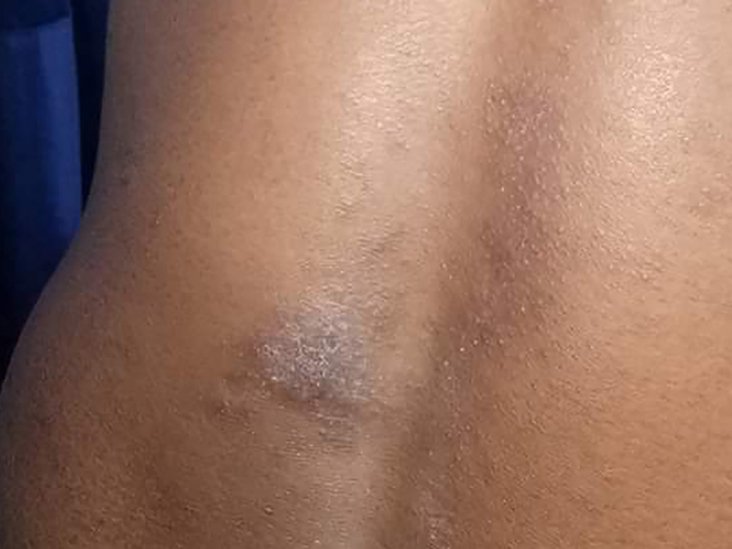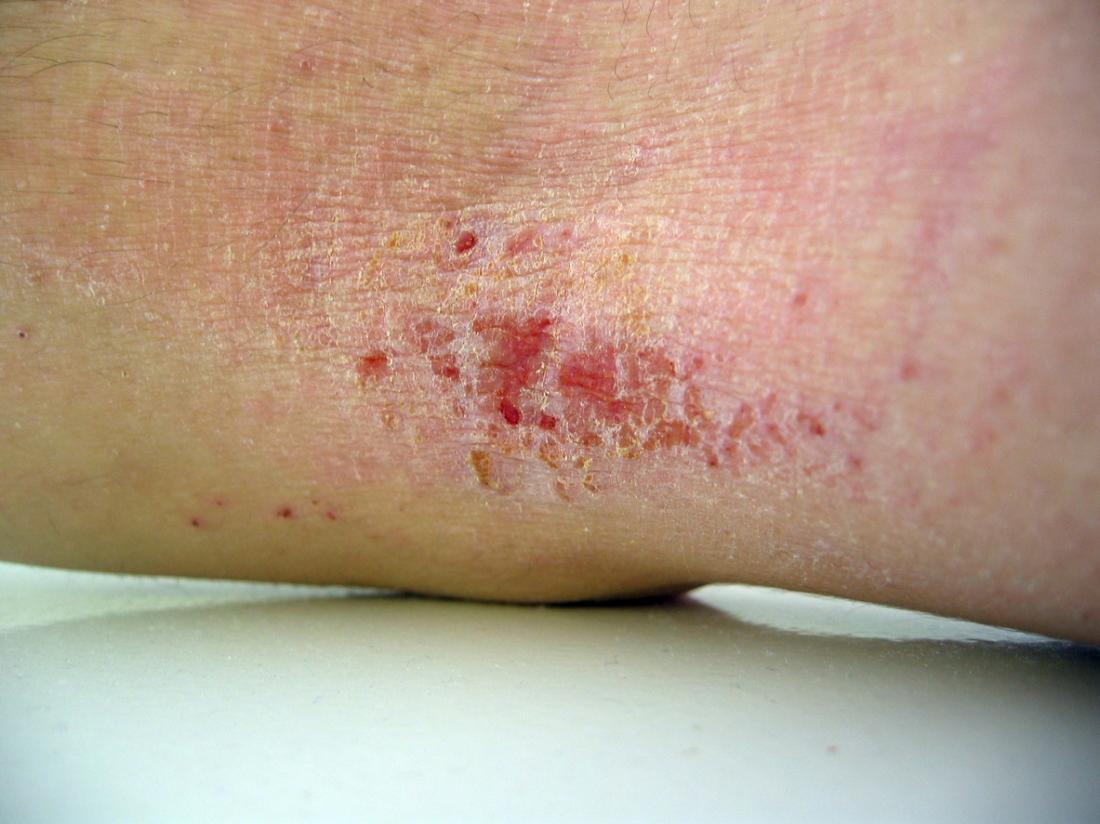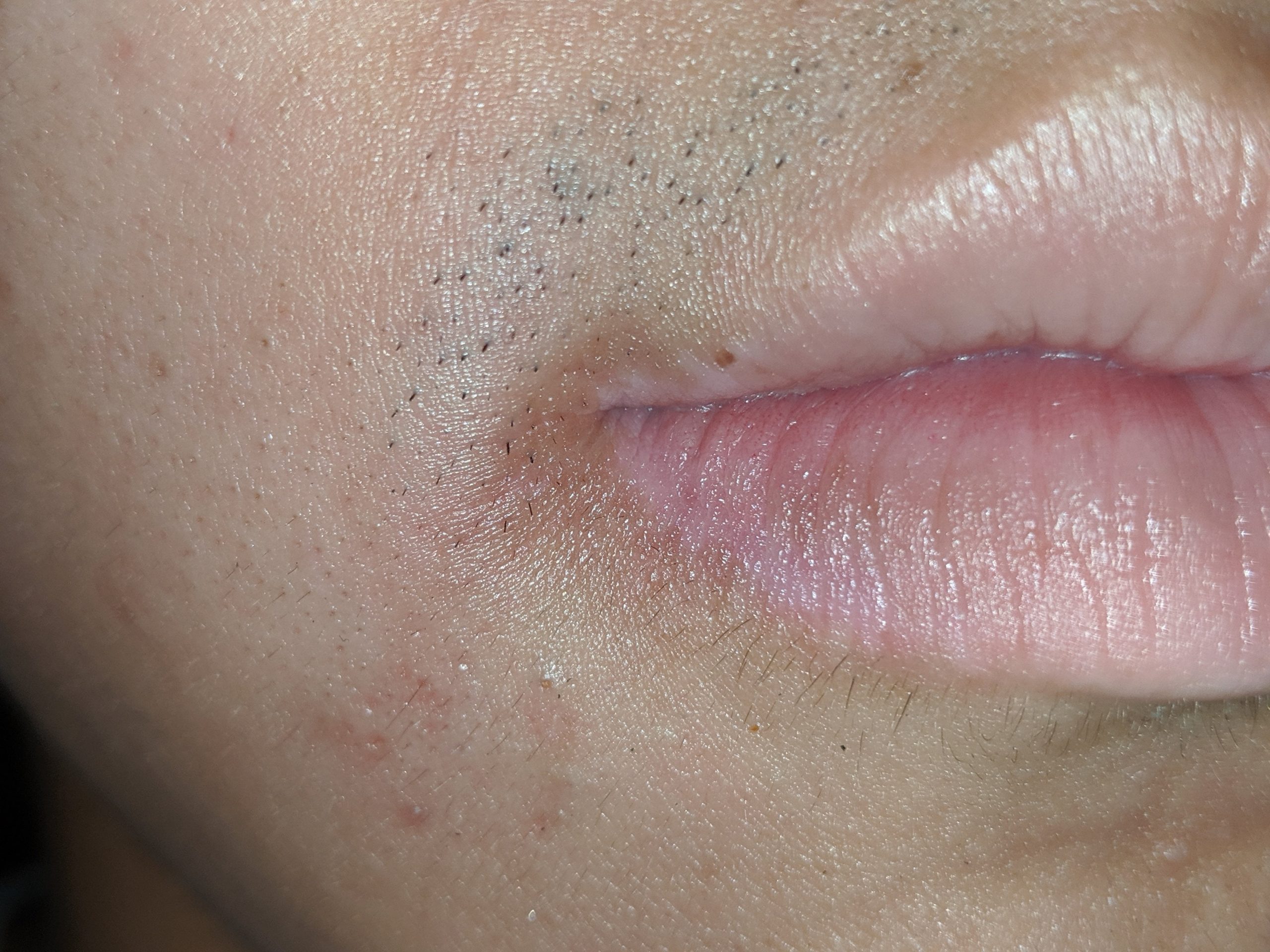How Can I Reduce My Risk Of Eczema
There are steps you can take that may prevent eczema outbreaks:
- Establish a skin care routine, and follow your healthcare professionals recommendations for keeping your skin healthy.
- Wear gloves for jobs where you have to put your hands in water. Wear cotton gloves under plastic gloves to absorb sweat, and wear gloves outside, especially during the winter months.
- Use mild soap for your bath or shower, and pat your skin dry instead of rubbing. Apply a moisturizing cream or ointment immediately after drying your skin to help seal in the moisture. Reapply cream or ointment two to three times a day.
- Take baths or showers with tepid rather than hot.
- Drink at least eight glasses of water each day. Water helps to keep your skin moist.
- Try to avoid getting too hot and sweaty.
- Wear loose clothes made of cotton and other natural materials. Wash new clothing before wearing. Avoid wool.
- Avoid sudden changes in temperature and humidity.
- Learn to recognize stress in your life and how to manage it. Regular aerobic exercise, hobbies and stress-management techniques, such as meditation or yoga, might help.
- Limit your exposure to known irritants and allergens.
- Avoid scratching or rubbing itchy areas of skin.
How Can Parents Help
Help prevent or treat eczema by keeping your child’s skin from getting dry or itchy and avoiding triggers that cause flare-ups. Try these suggestions:
- Kids should take short baths or showers in warm water. Use mild unscented soaps or non-soap cleansers and pat the skin dry before putting on cream or ointment. Teens should use unscented makeup and oil-free facial moisturizers.
- Ask your doctor if it’s OK to use oatmeal soaking products in the bath to help control itching.
- Kids should wear soft clothes that “breathe,” such as those made from cotton. Wool or polyester may be too harsh or irritating.
- Keep your child’s fingernails short to prevent skin damage from scratching. Try having your child wear comfortable, light gloves to bed if scratching at night is a problem.
- Kids should avoid becoming overheated, which can lead to flare-ups.
- Kids should drink plenty of water, which adds moisture to the skin.
- Get rid of known allergens in your household and help your child avoid others, like pollen, mold, and tobacco smoke.
- Stress can make eczema worse. Help your child find ways to deal with stress .
Eczema Coping Tips Diet
In most cases, eczema isnt caused or made worse by diet. If you notice that your eczema seems to get worse after eating a particular food, you may be an exception to this. See your doctor or dietitian for proper allergy testing and dietary advice.Never self-diagnose or you risk depriving yourself of enjoyable and nutritious foods for no good reason. Unnecessarily avoiding certain foods can lead to nutritional deficiencies.
Also Check: Wild Naturals Eczema Psoriasis Shampoo
Tips For Eczema Proofing Your House
Eczema triggers can be different for everyone and can be brought on by many different factors. However, in most cases, triggers often come from stress, allergens, and your environment, according to the National Eczema Association .
People who have eczema are much more susceptible to irritation from things that they can commonly come into contact with, which could be as simple as water, says Marisa Garshick, MD, FAAD, an assistant clinical professor of dermatology at Weill Cornell Medicine and dermatologist at MDCS Dermatology in New York City.
For many people living with eczema, the common triggers that are causing them problems are often the ones lurking in their homes. The good news, however, is that there are several ways to keep these potential triggers to a minimum in every room of your house. Keep reading for tips on eczema proofing your house.
RELATED: 6 Eczema Triggers To Avoid
How Common Is Eczema

Eczema affects up to 15 million Americans. Infants are prone to eczema and 10% to 20% will have it. However, nearly half outgrow the condition or have significant improvement as they get older.
Eczema affects males and females equally and is more common in people who have a personal or family history of asthma, environmental allergies and/or food allergies.
Don’t Miss: Are You Born With Eczema
Are People With Melanated Skin More Prone To Eczema
Research has shown that eczema is more common on darker skin and more likely to be misdiagnosed. In fact, eczema is more likely to affect Black children than those of other ethnicities. According to the National Eczema Association, 20 percent of Black children in the United States have some form of eczema. That’s compared to 13 percent of Asian children, 13 percent of Native American children, 12 percent of white children, and 11 percent of Hispanic children. When it comes to adults, 11 percent of Hispanic adults are diagnosed with eczema, with nine percent of Asian adults and eight percent of both Native American and Black adults being impacted by the skin condition.
Seattle Children’s Urgent Care Locations
If your childâs illness or injury is life-threatening, call 911.
Also Check: What Can I Put On My Eyes For Eczema
What Foods Should I Eat Or Avoid To Reduce My Risk Of Eczema
The connection between eczema and food allergies is unclear. If you have food allergies, then one of the reasons why you must avoid that food is that it may cause or worsen dermatitis. Examples of common allergies include peanuts, dairy, eggs, sugar, alcohol and gluten. Pay attention to what you eat. If your eczema flares up after you eat a certain food, then you might have an allergy to it.
If you dont have a food allergy then there are no foods, including chicken, that will cause or worsen your eczema.
What Is Eczema In The First Place
Eczema is a sort of umbrella term that includes a few itchy skin rashes, but it most commonly refers to the condition known as atopic dermatitis, says Laura Scott, MD, board-certified dermatologist and associate director, skin of color division at UM Frost Dermatology. It’s a chronic condition, she continues, where an overactive immune system leads to an impaired skin barrier that can cause dry, itchy skin, and even skin infections.
What makes this skin condition even more complicated is that its not the same across the board. There are actually multiple forms of eczema ranging in severity and appearance,Caroline Robinson, MD, Chicago-based board-certified dermatologist and founder of Tone Dermatology, says. It can appear as early as infancy and usually shows up on the face, elbow and knees. From there, it can eventually spread to other parts of the body.
Read Also: Best Thing For Eczema On Arms
How Do I Take Care Of Myself
Reducing your stress is very important. Try these tips:
- Count to ten as you take a deep breath.
- Exercise daily.
- Try not to drink as much caffeine and alcohol.
- Sleep eight hours a night.
- Eat healthy.
- Try to have a positive attitude.
- Journal every day.
- Talk about your life with friends, family and a therapist.
Can You Catch Eczema From Another Person Who Has It
So can you catch eczema from someone else or give your eczema to someone? In a word, no both Prete and Dr. Rieder emphasize that eczema is NOT contagious. You are just genetically predisposed to it or not, most of the time, Prete explains. For instance, even if you share a bed every night with someone who has eczema, you wont suddenly develop it on your own, she says.
RELATED: 12 Triggers of Eczema and How to Target Them
Read Also: Is Hydrocortisone Used For Eczema
How Can Dyshidrotic Eczema Become Infected
Dyshidrotic eczema can cause blisters and dry, cracked skin. Scratching your skin can cause further irritation and create small wounds. Your skin may become infected due to cracked skin, fissures, and open wounds that allow viruses, fungi, and bacteria to enter your skin.
Bacteria like Streptococcus or Staphylococcuscan also cause infected eczema. Staphylococcus is a type of bacteria that lives on your skin. It may enter wounds or broken skin to cause a staph infection.
Symptoms of a bacterial infection include:
- pain
- blistered skin
You can treat a bacterial infection with antibiotics or antiseptics.
Candida is a common fungal infection that can occur along with dyshidrotic eczema. You can treat fungal infections with antifungal creams or tablets.
When To See A Healthcare Provider

Eczema should always be diagnosed by a healthcare provider. Although its tempting to try to treat your eczema at home, seeing a medical professional is especially important if you have genital eczema.
Eczema on the penis can look like other conditions including STIs or a yeast infection. A healthcare provider will be able to give you a proper diagnosis and connect you with the treatment you need.
Seeing a healthcare provider can also help prevent further complications.
Having eczema can cause your skin to crack. This removes some of the protective functions of the skin and can put you at increased risk of infection. Because of that, people who have eczema are more likely to have infections including herpes and staph infection.
The following symptoms can indicate an infection. If you have them, reach out to your medical provider immediately:
- Pus-filled bumps or a rash that is moist or weepy
- Skin that feels warm or hot
- Areas of the skin that are red, swollen and painful to touch
You May Like: What Is The Treatment For Eczema
Preventing The Spread Of Eczema
Preventing the spread of eczema depends on the type of eczema a person has. For example, contact dermatitis will stop spreading once a person removes the source of irritation. Eczema that has become infected may require topical or oral antibiotic treatment.
One of the main ways people can prevent eczema from becoming more inflamed and itchy is to avoid scratching. Treating flare-ups as quickly as possible can remove the temptation to scratch. It may also help if people keep fingernails trimmed or wear cotton gloves to bed.
How Can I Prevent An Outbreak Of Eczema On Nipples
To prevent an outbreak, you should:
- Avoid strong soaps and lotions, especially those with artificial smells or colors. Use hypoallergenic lotions. You may also want to try creams and lotions that contain ceramide, which can restore your skins natural barrier.
- Cut foods out of your diet that you are allergic to or that trigger an eczema outbreak.
- Maintain a healthy weight, and talk to your provider about losing weight if you have obesity.
- Manage stress levels with relaxation exercises or therapy.
- Run a humidifier in your room to keep the air from getting too dry.
- Take shorter showers or baths, and dont bathe in water thats too hot since it can dry out your skin.
- Try not to scratch the rash. Scratching might give you relief at first, but it can make the itching and pain worse. It can also cause your skin to break, which increases the chance that youll get an infection.
- Use unscented laundry detergent made for sensitive skin.
- Wear cotton shirts and bras. Manmade or scratchy fabrics can irritate your nipples.
Recommended Reading: What Helps Eczema On Legs
So What Causes Eczema
Basically, the cause of eczema is somewhat unknown. Some people are born with genetic tendency to develop eczema. However, it is not completely understood why some people develop a more severe form than others or when it develops, says Dr. Robinson.
Dr. Scott agrees that the cause is a combination of genetics and environment. Of course in certain seasons, if the temperatures drop where you live, dry skin will be more prevalent.
At Least It’s Not : : : :
People often think they’re reassuring a person with eczema by reminding them how lucky they are that their rash isn’t a “more serious” medical condition. But while it’s true that eczema won’t kill you, this type of comment isn’t particularly helpful, Karina says. “What people have to understand is just because it’s not life-threatening, doesn’t mean that it’s totally benign,” she explains. “People with eczema can have a really poor quality of life.”
For people with chronic, severe eczema in particular, the condition requires a lot of self-care. You need to be constantly mindful of allergens, household items, animals, and other irritants that could cause eczema symptoms to flare upand treating those symptoms can also be extremely challenging.
“It can have a detrimental impact,” says Karina.
Recommended Reading: Best Bed Sheets For Eczema
How Is Eczema Diagnosed
Theres no single test for diagnosing eczema. Your doctor or your childs pediatrician will conduct a physical exam. Some patients may be referred to a dermatologist or allergist. Doctors look for typical signs and symptoms of eczema, such as itching and rash.
The difficulty is often ruling out other conditions that cause irritating skin symptoms. Atopic dermatitis, for example, may be confused with seborrheic dermatitis , while nummular eczema may resemble ringworm . Sometimes a skin patch test or allergy test may be required to confirm an eczema diagnosis by ruling out other conditions.
Expect your doctor to ask about your family history of allergic disease, since eczema can run in families. Kids with eczema can also go on to develop food allergy, hay fever , and asthmausually in that order .
Tell your doctor when symptoms first appeared, how often you or your child experiences symptoms, other body parts that are affected, whether the problem comes and goes, and when it seems to flare up. Your doctor may ask about any allergies you or your child have and potential triggers of symptoms.
Eczema Coping Tips Avoid Changes In Temperature
Abrupt temperature and humidity changes can sometimes irritate the skin for example, going in and out of air-conditioned buildings on hot days or heated buildings on cold days.Hard physical activity or exercise that makes you sweat heavily can also trigger the itch of eczema.Suggestions include:
- In winter, dont overheat your house. Dress warmly when going outdoors and remove the extra layers as soon as you return.
- In summer, dont over cool your house. Air conditioners can dry out the air and irritate your skin.
- Avoid hard physical activity in hot weather. For example, do your gardening first thing in the morning, or in the evening when the sun is lower in the sky.
Read Also: Why Do I Have Eczema On My Arms
A Final Word On Why Eczema Isnt Contagious
The bottom line? Eczema is not contagious so if youre self-conscious about your itchy, dry skin, know that you and people around you shouldnt worry about the possibility of it being passed along to someone else. If your skin becomes infected, whether by itching eczema or through some other means, that infection can be passed on to somebody else through skin-to-skin contact but not the underlying condition of eczema itself.
RELATED: How Reducing Indoor Allergens Can Help Ease Eczema Symptoms
And you can talk with a dermatologist about all the ways to manage eczema, including moisturizing as often as possible and doing your best to lock in that moisture, such as with a fragrance-free cream. Allergy testing can also help you pinpoint some of the triggers of your eczema, Prete notes.
Daily self-care, using soothing emollients, and regular visits to a board-certified dermatologist can help control this itchy, annoying, and sometimes debilitating condition, Rieder says.
What Are The Symptoms Of Eczema On Nipples

People with nipple eczema develop a red, itchy, scaly rash on their nipples and areola. Your areola is part of your breast anatomy. Its the dark circle of skin around your nipple. Nipple eczema can flare up or get worse every now and then. It may get better or even go away for a few weeks, months or years and then come back. Signs of nipple eczema include:
- Dry, inflamed skin around your nipple.
- Itchy, painful, burning or sensitive skin.
- Rash that has brown, red or gray patches or spots.
- Scaly, dry skin that may peel, crust or scab over.
- Small bumps that ooze fluid.
Recommended Reading: Best Lotion For Eczema Prone Skin
How Can I Prevent Eczema From Getting Infected
Even though theres no cure for eczema, there are ways to prevent infections when flare-ups, well, flare up:
- Resist the itch. Yes, we know this ones hard. But avoiding scratching an itchy eczema rash helps keep the skin from cracking and breaking open.
- Lather up. Applying lotion to the affected area will keep it nice and moisturized. This can help keep itching at bay so you arent tempted to scratch away. There are many moisturizers for dry skin and for eczema specifically that you can try.
- Avoid harsh chemicals. Stick with mild cleansers without soap, dyes, or heavy scents. These can irritate already irate skin.
- Tame those triggers. Knowing what your triggers are and avoiding them can help keep flare-ups from worsening. It may also help increase the time between flare-ups, so you stay eczema-free longer.
- Talk to your derm. Your dermatologist can help you zero in on which kind of eczema you have. They can then recommend the best ways to manage and prevent flare-ups.